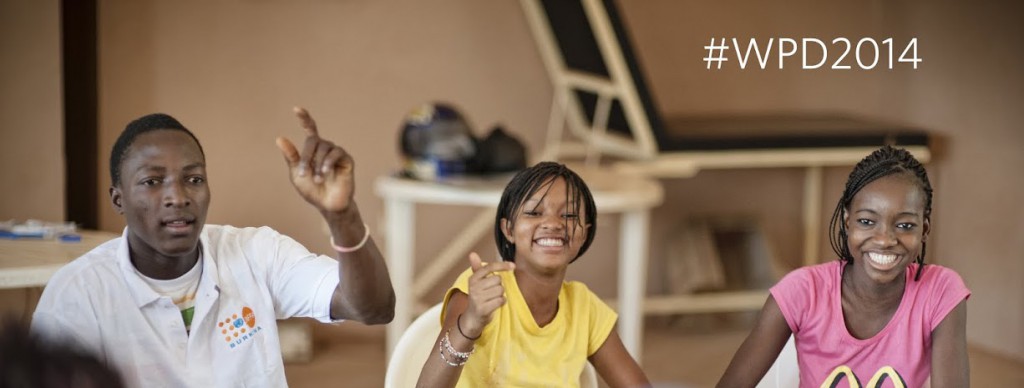This opinion piece by DSW’s Executive Director Renate Baehr originally appeared online at Devex. You can access it on their site here.

Nabajju is a young woman living in rural Uganda. While still in school Nabajju, like many girls of her age living in low- and middle-income countries, became pregnant unexpectedly. Unlike many girls in her situation, however, she was lucky enough to finish her education and to explore her options for a career in teaching. Her unplanned pregnancy threatened to derail any of the plans that she had made for herself. Fortunately for Nabajju, she was able to rely on the support of her parents and on the local youth centre of which she is a member. At the youth centre, part of the DSW Youth to Youth network of youth clubs, she was able to receive the support and investment that she needed, receiving peer-to-peer counselling – giving her the life skills, tools and confidence to move forward.
Time to empower girls
For every Nabajju, however, there are millions of girls every year who experience an unplanned pregnancy and do not receive this kind of support and investment in their future. Empowering these girls to take control of their lives and their health improves their life chances – in education, health, employment opportunities, and has hugely positive knock-on effects for their communities. Today, on World Population Day, we must acknowledge that we are failing the 500 million girls in low- and middle-income countries. If we are to properly address the challenges they face we need to prioritise girls and young women in international development policy and in the post-2015 framework. Ensuring that they have full access to their sexual and reproductive health and rights is a fundamental part of this challenge.
Adolescent pregnancy
Every day, 20,000 girls under 18 just like Nabajju give birth.
In total, 19 of every 100 girls living in low- and middle-income countries will give birth before they are 18.
Of these, three of these 100 are under the age of 15. Childbirth is now a leading cause of death for young women aged between 15 and 19 and living in the world’s poorest countries; 70,000 girls die each year from pregnancy and childbirth-related complications. With a lack of access to comprehensive sexuality education, to proper family planning advice and to affordable and effective methods of contraception, including condoms it is no wonder that young women and girls in low- and middle-income countries also suffer disproportionately from HIV and AIDS. HIV and AIDS are the leading cause of death and disease of women of productive age; HIV infection rates in young women remain almost twice as high as those for young men.
For the full article, please head to Devex’s website here!
For more information about DSW and how we are working every day to give girls to the tools to achieve their empowerment, check out our website!
Renate Baehr, DSW Executive Director
In June 2008, Ms. Renate Baehr became the Executive Director of DSW (Deutsche Stiftung Weltbevoelkerung). Prior to that, Ms. Baehr was DSW’s Vice Executive Director since 1998. She has a long-standing record of successful advocacy, policy and public awareness-raising work in the field of global health and sexual and reproductive health in Germany and Europe. She played the lead role in establishing DSW’s Parliamentary Advisory Committee (PAC) in 2003.
Based on her expertise, Ms. Baehr has become a key advisor to the German government in matters related to sexual and reproductive health and rights, including as member of official delegations to relevant international United Nations Conferences. She participated in the International Conference on Population and Development in Cairo in 1994. Today, she is DSW’s key advisor to the German parliament on sexual and reproductive health and rights.
Ms. Baehr serves on the board of the Association of German Development Organizations (VENRO) and is heading the working group on the Forum on Global Issues and Development of the Federal Association of German Foundations. She is also a member of the Board of Trustees of GIZ (formerly GTZ, the German Technical Co-operation Agency), a founding member of the Foundation Initiative of Hannover and a member of the Council for Education of the German Public Relations Association. Ms. Baehr was awarded an MA in Mathematics and Political Science by the University of Hannover.

